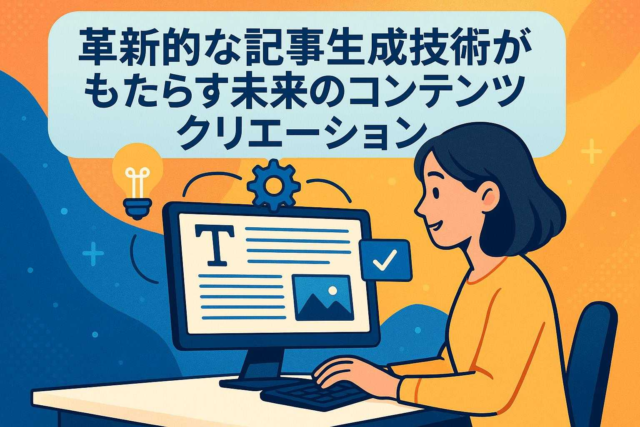Vietnam to Japan: Finding the Perfect N1 Japanese Speaking Candidates

In the dynamic landscape of global talent acquisition, the search for proficient N1 Japanese-speaking candidates from Vietnam to Japan represents a unique intersection of linguistic excellence and cultural integration. As businesses expand their operations in Japan, the demand for individuals who not only possess a high level of Japanese language proficiency but also understand the cultural nuances becomes paramount. The Japanese Language Proficiency Test (JLPT) N1 level is widely recognized as the pinnacle of Japanese language mastery for non-native speakers, symbolizing an individual’s capability to engage effectively in professional Japanese environments. Vietnam, with its growing number of Japanese language learners and aspirants, has emerged as a promising source of such high-caliber candidates. Institutions like the Vietnam-Japan Human Resources Development Institute (VJCC) play a crucial role in nurturing these talents, equipping them with the skills required to thrive in Japan’s competitive job market. This article explores the pathways and strategies for identifying and recruiting top-tier N1 certified Vietnamese professionals, bridging the gap between linguistic expertise and the demands of Japanese industries.
Finding the Perfect N1 Japanese Speaking Candidates from Vietnam to Japan
In recent years, Vietnam has emerged as a significant source of skilled professionals seeking employment opportunities in Japan. This trend is particularly evident among candidates who have achieved N1 proficiency in the Japanese Language Proficiency Test (JLPT). The N1 level signifies the highest proficiency in Japanese, enabling candidates to effectively communicate in complex and nuanced situations, which is highly valued in professional settings.
The Importance of N1 Proficiency
The JLPT is a widely recognized standard for measuring Japanese language ability among non-native speakers. Achieving N1 certification demonstrates a deep understanding of the language, including the ability to comprehend and produce complex texts and engage in sophisticated conversations. For employers in Japan, hiring N1-certified individuals means integrating team members who can seamlessly communicate with native speakers and understand cultural nuances, making them valuable assets in diverse fields such as engineering, technology, and business.
Vietnam: A Growing Source of N1 Candidates
Vietnam has become a notable source of N1-level Japanese speakers, thanks to its robust educational system and increasing interest in Japanese culture and business. Many Vietnamese students pursue higher education in Japan or enroll in Japanese language programs at home, motivated by the potential career opportunities that proficiency in Japanese can offer.
Institutions like the Vietnam-Japan Human Resource Development Institute (VJCC) play a crucial role in preparing students for the JLPT by offering specialized courses and resources. These programs not only focus on language skills but also provide insights into Japanese business etiquette and culture, preparing candidates for successful integration into Japanese workplaces.
The Journey to N1 Proficiency
Achieving N1 proficiency is no small feat. It requires dedication, rigorous study, and often, a passion for the language and culture. Vietnamese students typically start their Japanese language education at the university level, and some even begin in high school. The journey involves mastering complex kanji, understanding advanced grammar, and developing the ability to engage in high-level discussions.
For instance, students like those from Hanoi University of Science and Technology have demonstrated exceptional skills by combining their technical education with language proficiency. This blend of technical expertise and language ability makes them attractive candidates for Japanese employers, particularly in fields like information technology and engineering.
The Role of Technology in Language Learning
Advancements in technology have significantly aided language learners, providing tools that make the learning process more accessible and efficient. Online translation services such as Google Translate and DeepL offer immediate assistance in understanding and practicing Japanese. These tools, while not substitutes for comprehensive learning, provide valuable support, especially in understanding complex texts or engaging in practice conversations.
Moreover, language learning apps and online courses offer interactive and engaging ways to improve language skills, catering to different learning styles and paces. These resources are particularly beneficial for Vietnamese candidates who may not have immediate access to native speakers for practice.
Employment Opportunities for N1 Candidates
The demand for N1-certified professionals in Japan spans various industries. From multinational corporations seeking bilingual employees to local businesses looking for individuals who can bridge cultural and communication gaps, the opportunities are vast.
For example, the technology sector in Japan is a major employer of N1-level Vietnamese professionals. Companies value their ability to collaborate effectively in international teams and contribute to projects that require both technical expertise and linguistic proficiency. Additionally, roles in translation, interpretation, and customer service also benefit from candidates who can navigate complex linguistic and cultural landscapes.
Challenges and Considerations
Despite the advantages, Vietnamese candidates face challenges in securing employment in Japan. Cultural differences, visa regulations, and the competitive job market require candidates to be well-prepared and informed. Understanding Japanese business culture, demonstrating adaptability, and showcasing both technical and language skills are crucial for standing out in the job market.
Furthermore, navigating the visa application process can be daunting. Candidates must ensure they meet all legal requirements and often benefit from seeking guidance from recruitment agencies or Japanese language institutions that offer support in this area.
Conclusion
The journey from Vietnam to Japan for N1 Japanese-speaking candidates is one of dedication, skill, and opportunity. As more Vietnamese professionals achieve N1 proficiency, they become valuable contributors to Japan’s workforce, bringing unique perspectives and skills. For employers, recognizing and nurturing this talent pool can lead to successful and mutually beneficial employment relationships.
As the demand for skilled, multilingual professionals continues to grow, Vietnam’s role as a source of N1 Japanese speakers will likely expand, fostering greater cultural and economic ties between the two countries. By understanding the journey and challenges faced by these candidates, both employers and job seekers can better navigate the path to successful employment in Japan.
**Q1: What are the key qualifications for finding N1 Japanese speaking candidates from Vietnam?**
Finding N1 Japanese speaking candidates from Vietnam involves focusing on several key qualifications. Firstly, ensure that candidates have passed the JLPT N1 exam, the highest level of the Japanese Language Proficiency Test. This certification reflects their ability to understand and use Japanese in a variety of complex contexts. Additionally, consider their educational background and experience. Many Vietnamese candidates, like those from Hanoi University of Science and Technology, often have strong technical skills in areas such as computer science and engineering, which are highly valued in Japan. Lastly, assess their cultural adaptability and motivation for working in Japan, as these factors significantly contribute to successful integration into Japanese work environments.
**Q2: How can translation tools assist in the recruitment process of N1 Japanese speakers from Vietnam?**
Translation tools can significantly streamline the recruitment process by facilitating clear communication between recruiters and candidates. Tools like Google Translate and DeepL offer instant translations of documents and correspondence, allowing recruiters to verify qualifications and communicate job requirements effectively. These services are particularly beneficial for handling initial inquiries and ensuring that both parties understand each other’s expectations. However, for detailed interviews or contract negotiations, it’s advisable to use professional translators or bilingual staff to ensure accuracy and nuance in communication.
**Q3: What challenges might employers face when hiring Vietnamese candidates for Japanese speaking positions, and how can they be addressed?**
Employers may encounter challenges such as cultural differences, language nuances, and relocation logistics when hiring Vietnamese candidates for Japanese speaking positions. To address these, companies should provide cultural orientation programs to ease the transition and foster understanding of Japanese workplace etiquette. Language barriers can be mitigated by offering ongoing language training to enhance proficiency and confidence. Additionally, assisting with relocation logistics and providing support for integration into the community can help candidates settle more comfortably, thus improving job performance and retention.
**Q4: Why is the demand for Vietnamese N1 Japanese speakers increasing in Japan?**
The demand for Vietnamese N1 Japanese speakers in Japan is on the rise due to several factors. Japan’s aging population and shrinking workforce have led to a need for skilled foreign workers, particularly in technical fields such as IT and engineering, where Vietnamese professionals excel. Furthermore, the strong economic ties between Japan and Vietnam encourage businesses to seek bilingual candidates who can navigate both markets effectively. This demand is also fueled by Vietnam’s growing emphasis on Japanese language education, resulting in a larger pool of qualified candidates.
**Q5: What tips can help Vietnamese candidates prepare for job interviews in Japan?**
Vietnamese candidates can prepare for job interviews in Japan by practicing common interview questions in Japanese and researching the company to understand its values and goals. They should also familiarize themselves with Japanese business etiquette, such as bowing, punctuality, and appropriate dress codes. Additionally, candidates should prepare to discuss their technical skills and experiences in a way that highlights their relevance to the job. Demonstrating an understanding of Japanese culture and expressing a genuine interest in contributing to the company’s success can also leave a positive impression on interviewers.
By addressing these key questions, employers and candidates can better navigate the process of finding and hiring N1 Japanese speaking professionals from Vietnam, ultimately leading to successful employment outcomes.
Finding the perfect N1 Japanese-speaking candidates from Vietnam to Japan requires a strategic approach, focusing on the unique linguistic and cultural skills that these candidates offer. The JLPT N1 certification is the highest level of proficiency, indicating a deep understanding of Japanese, which is a valuable asset for employers in Japan. Vietnamese candidates with N1 certification often possess additional linguistic versatility, typically being fluent in English and Vietnamese, making them highly adaptable in multicultural environments.
Institutions like the Vietnam-Japan Human Resources Development Institute (VJCC) play a crucial role in preparing these candidates through comprehensive Japanese language programs. The increasing number of Vietnamese students pursuing higher education in Japan reflects a growing interest in Japanese employment opportunities. These students often have backgrounds in technical fields such as computer science and engineering, enhancing their appeal to Japanese companies seeking skilled professionals.
Moreover, the experience of Vietnamese candidates studying and working in Japan provides them with insights into the local work culture, contributing to a smoother transition into the Japanese workforce. Testimonials from successful candidates highlight the importance of understanding Japanese business etiquette and the dedication required to secure employment in Japan.
In conclusion, tapping into the Vietnamese talent pool for N1 Japanese-speaking candidates offers Japanese employers access to highly skilled, multilingual professionals familiar with both Vietnamese and Japanese cultures. This approach not only addresses language proficiency needs but also enhances the diversity and innovation within the workplace. By leveraging both language skills and technical expertise, Vietnamese candidates are well-positioned to contribute significantly to Japan’s global business landscape.


コメントを書く